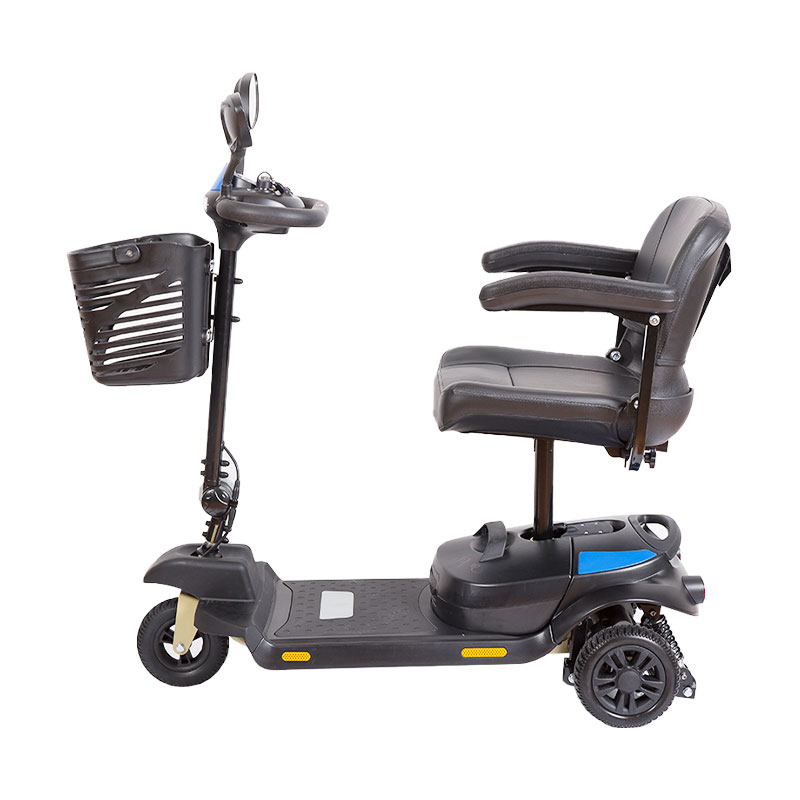How do various battery types impact the cost and accessibility of mobility scooters for seniors?
Different battery types can significantly influence the overall cost and accessibility of 3 wheels elderly mobility scooters for elderly users in various ways:
Initial Cost: Lithium-ion batteries tend to be more expensive upfront compared to traditional lead-acid batteries. While lead-acid batteries lower the initial purchase price of the scooter, they may not offer the same performance or longevity, which can lead to higher long-term costs due to frequent replacements.
Maintenance and Replacement: Lithium-ion batteries typically have a longer lifespan and require less maintenance than lead-acid batteries. This means that although the initial investment may be higher, users can save money over time because they won’t need to replace the batteries as often. In contrast, the shorter lifespan of lead-acid batteries can make scooters equipped with them less cost-effective in the long run.
Weight and Portability: Lithium-ion batteries are generally lighter than lead-acid batteries. This can enhance the portability of the scooter, making it easier for elderly users to transport or maneuver. A lighter scooter may also be easier for caregivers to assist with, improving overall accessibility.

Charging Time: Lithium-ion batteries typically charge faster than lead-acid batteries. This can be particularly advantageous for elderly users who may not want to wait long periods for their scooters to recharge, thus promoting greater independence and usability.
Performance: Different battery types can impact the performance of the scooter, including speed and range. Lithium-ion batteries provide better energy efficiency and longer ranges, allowing users to travel further without needing to recharge. This can make scooters more appealing to elderly users who want to maintain an active lifestyle.
Availability and Support: The accessibility of replacement batteries can also vary by type. Lead-acid batteries are widely available and can often be found at lower prices. However, as the market shifts towards lithium-ion technology, availability may improve, but costs can remain higher initially due to less competition and production.
Environmental Considerations: Some users may be influenced by the environmental impact of battery disposal. Lithium-ion batteries are generally considered more eco-friendly in terms of lifespan and recycling options. This could make scooters with these batteries more attractive to environmentally conscious consumers.


 English
English Deutsch
Deutsch







-3.jpg?imageView2/2/format/jp2)
.jpg?imageView2/2/format/jp2)






